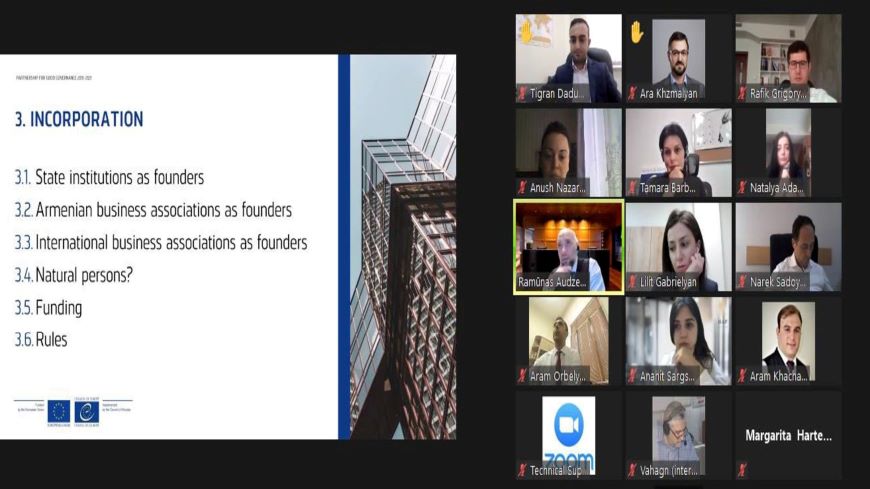On 5 May 2021 the online discussion of the Comparative analysis on certain aspects of arbitration in Armenia took place in the framework of the project “Support to the judicial reform – enhancing the independence and professionalism of the judiciary in Armenia.”
One of the Project components is focused on the improvement of the practical application of arbitration in Armenia in order to facilitate access to justice and for the benefit of the public, as well as the reduction of the backlog of cases.
Comparative analysis on certain aspects of arbitration in Armenia was conducted by the Council of Europe international consultant Mr. Ramunas Audzevicius. The conducted research aimed to provide the best practices of the Council of Europe member states on several specific issues of arbitration in the light of current legal and judicial reform with the purpose of responding to the questions raised by the Ministry of Justice.
The online discussion was attended by the representatives of Ministry of Justice, Civil Court of Appeal, Arbitrators’ Association, Central bank of Armenia and other interested institutions.
This event was organised in the framework of the project “Support to the judicial reform – enhancing the independence and professionalism of the judiciary in Armenia,” funded by the European Union and the Council of Europe in their Partnership for Good Governance II (2019-2022).





